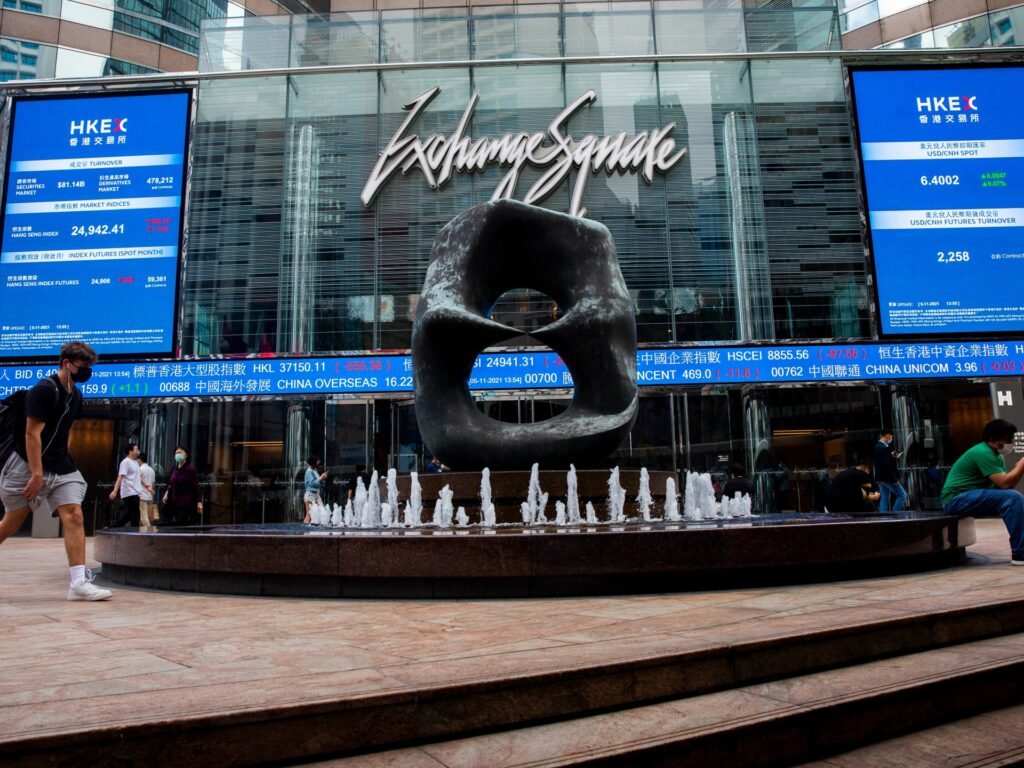Mayor John Lee said the move would make the Asian financial hub more competitive.
Hong Kong is set to end the decades-old practice of closing its stock market during typhoons and extreme weather.
Hong Kong Chief Executive John Lee said the changes were broadly supported by the financial industry and would bring Hong Kong’s financial centre on par with other markets, including mainland China.
“Shenzhen and Shanghai are currently trading in adverse weather conditions. There is no reason why Hong Kong, being an international financial centre, should not follow suit,” Li told reporters at a news conference on Tuesday.
“Continuing to trade uninterrupted even during bad weather could strengthen the Hong Kong Exchange’s competitive position,” he added.
Hong Kong is regularly hit by typhoons between June and October, but authorities have warned residents to expect more powerful and unpredictable storms in the future due to climate change.
Last year, Hong Kong authorities issued the city’s highest alert level, T10, following super typhoon Saola – only the 16th time since World War II.
But there were only 11 storms of typhoon strength or greater last year, according to the Hong Kong Observatory, down from an average of about 15 between 1961 and 2020.
Hong Kong’s stock market has suffered huge losses in recent years due to slowing Chinese growth and a crackdown on dissent in the semi-autonomous territory, which was promised rights and freedoms unavailable on the mainland as a part of its handover from Britain.
The benchmark Hang Seng Index fell 13.8% at the end of 2023, its fourth consecutive annual decline.
Since 2019, the index has fallen more than 38% despite sharp gains in stock markets in the U.S., Japan and India.
In January, India’s stock market overtook Hong Kong to become the world’s fourth-largest stock market, according to data from the World Federation of Exchanges.

